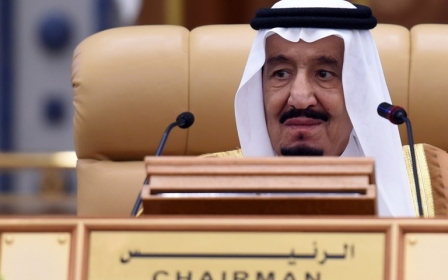Germany rejects own spy agency's criticism of Saudi Arabia

The German government on Friday rejected the findings of a damning report on Saudi Arabia by its own spy agency and called Riyadh a key partner in regional conflict resolution.
The highly unusual spat between the chancellery and foreign ministry on one side and the BND foreign intelligence service on the other side erupted when the latter on Wednesday released a report accusing Saudi Arabia of a destabilising shift in foreign policy.
"The until now cautious diplomatic stance of the older members of the leadership of the royal family is being replaced with an impulsive policy of intervention," it said.
In particular, the BND focused on the role of Deputy Crown Prince Mohammed bin Salman who holds the defence portfolio and has largely spearheaded Riyadh's handling of the war in Yemen. Rights groups have repeatedly criticised the strikes, saying they have hit areas where there are no military targets.
The BND said he and his father King Salman, who acceded to power in January, appeared to want to establish themselves as the "leaders of the Arab world" by advancing a foreign policy agenda "with a strong military component as well as new regional alliances".
The government's rejection of the BND asssesment comes hours after the country's parliament voted on Friday to deploy Tornado reconnaissance jets, a frigate and up to 1,200 troops in Syria.
German government spokesman Steffen Seibert said on Friday it was crucial that Berlin has a "coherent position" on the role of Saudi Arabia in the region.
"The assessments by the BND that were published do not reflect this coherent position," Seibert said.
"Those who want progress on the pressing issues in the region - and there are many - need constructive relations with Saudi Arabia," he said.
"Those who say that do not deny that there can be differences of opinion and differences in our political systems. But Saudi Arabia is a very, very important factor in the region."
He highlighted Saudi Arabia's participation in meetings in Vienna aimed at finding a political solution in Syria and plans to host a meeting of opponents of Syrian President Bashar al-Assad.
Foreign ministry spokesman Martin Schaefer insisted that Berlin had a "good and trusting" relationship with the BND in the analysis of the Middle East.
But he said the role of the BND, which reports to the chancellery, was to provide "information that the government requests" and "not to supply journalists with information".
New MEE newsletter: Jerusalem Dispatch
Sign up to get the latest insights and analysis on Israel-Palestine, alongside Turkey Unpacked and other MEE newsletters
Middle East Eye delivers independent and unrivalled coverage and analysis of the Middle East, North Africa and beyond. To learn more about republishing this content and the associated fees, please fill out this form. More about MEE can be found here.




